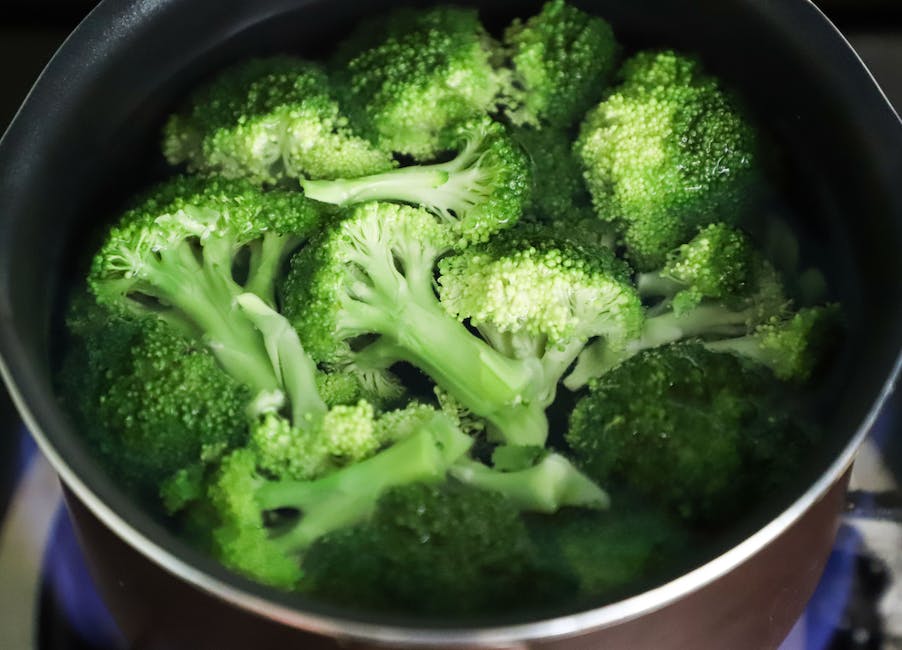
Are you looking to make a change in your life – one that will improve your body and your health? If so, the keto diet may be just the right diet for you! The keto diet, also known as the low-carb, high-fat diet, is quickly becoming one of the most popular diets due to its numerous benefits. In this article, we’ll discuss why the keto diet is becoming so popular, the health benefits associated with it, and how to begin a keto diet for yourself. Let’s dive in!
1. Unlocking the Wonder of Keto: Shed Those Pounds Quickly!
The ketogenic diet has been hailed as one of the most effective weight loss diets in recent times. Simple, yet packed with powerful benefits, the keto diet helps the body reach a sustainable balance between burning the carbs stored in the liver and muscles, and using the body’s own stored fat as its primary energy source.
It’s no wonder why this diet plan has become so popular – it helps you efficiently slash the pounds without feeling deprived of of what you eat. The main principles behind the keto diet are:
- Limiting your daily carb intake to 20-50 grams
- Focusing on higher fat consumption between 65-75%
- Eating plenty of protein, vegetables and healthy fats
- Staying mindful of your overall nutrient intake
The combination of these actionable tips helps create a powerful environment for your body to enter that safe and efficient fat-burning state of ketosis. To help kickstart your journey to a healthier you, try increasing your intake of healthy fats and proteins, such as omega-3 fatty acids, nuts, seeds, olive oil, grass-fed meats, poultry and eggs.

2. Is the Keto Diet Safe? Important Facts to Know Before You Try It!
The Keto Diet has become increasingly popular, as it promises a wide range of health benefits. But before starting on this diet, it’s important to know the facts. Here are some things to consider for anyone considering trying the Keto Diet:
- The initial transition to a Keto Diet can be difficult, as your body needs time to transition to running solely on fat. Symptoms can occur, generally known as the Keto Flu, and include headaches, fatigue, and irritability.
- Adequate hydration is key to a successful transition, as well as adequate amounts of salt and electrolytes. The rules of the Keto Diet can be strict, so it is important to ensure that you understand them and follow them correctly.
The Keto Diet is not recommended for certain groups, such as pregnant women and people who suffer from certain medical conditions. It is important to talk to your healthcare provider before making any significant changes to your diet. As with any diet, it is important to ensure that you get regular medical check-ups and blood tests to check for any adverse reactions to the Keto Diet.
3. The Benefits of Switching to Keto: How This Diet Can Lead to Long-Term Health Improvements
The ketogenic diet has gained massive popularity in recent years, largely due to its incredible ability to promote rapid weight loss. But its benefits don’t stop there. From improved mental clarity to a reduced risk of chronic disease, switching to a Keto way of eating can have a dramatic impact on your long-term health.
So, what are the benefits of going Keto? Here are some of the most important:
- Reduced Risk of Diabetes: Studies have consistently shown that people following keto-style diets have a lower risk of developing type 2 diabetes. This likely stems from the diet’s ability to help promote blood sugar control and reduce levels of potentially damaging triglycerides.
- Better Mental Clarity: The high-fat nature of keto diets often leads to improved mental clarity and alertness, which can be highly beneficial for people who have challenging, active lives. Additionally, this diet can make it easier to manage symptoms of some mental illnesses, like depression and anxiety.
- Reduced Risk of Cardiovascular Disease: A keto-style diet has been proven to improve several markers of cardiovascular health, including lower cholesterol and triglyceride levels. This can help reduce your risk of serious cardiac events like strokes or heart attacks.
It’s clear that switching to the Keto way of life has potential to significantly improve your long-term health. If you think you might be a good fit for this kind of diet, consult a qualified healthcare professional and take the plunge!
4. Low-Carb, High-Fat Foods to Get You Started: Tips on Shopping, Cooking, and Eating
Shopping
Before you get into the kitchen, you need to know what you’re working with. Low-carb, high-fat foods should dominate your shopping cart. Think meat, fish, Eggs, oils, cheese, nuts, and avocados. Check out your local farmers’ market for particularly tasty fare and be sure to stock your pantry with healthy fats like olive oil, nut and seed butters, and coconut oil.
Cooking
Low-carb, high-fat cooking is all about demonstrating finesse and finding clever replacements for carb-heavy ingredients. Experiment with almond and coconut flour instead of regular wheat flour, and nibble on veggies with high-fat dips like guacamole, pesto, hummus, and go-to sauces like mayonnaise. For fast-cooking meals, try stir-frying a mix of protein and veggies over high-heat with a generous helping of butter. If you’re baking, use nut flours for cakes, cookies, and other treats. Don’t forget to sprinkle with generous amounts of healthy fats, like freshly grated cheese or toasted nuts.
5. Feeling the Results: How Quickly Can You Expect to See Weight Loss With Keto?
For those looking to lose weight quickly, the keto diet is a great option. People who follow a ketogenic diet and remain in ketosis often see results within just a few days. However, the amount of weight you’ll lose and the speed at which you’ll see those results is largely dependent on various factors.
For many, the initial “keto flush” sees a significant weight loss of up to 10 pounds in a matter of days. This is due to decreased glycogen stores, causing water weight loss from glycogen depletion. Subsequent to this rapid weight loss, weight loss will likely average 1-2 pounds per week. Here’s what you should expect during your journey:
- In the first week, you’ll see some rapid weight loss
- The next two weeks, you’ll likely continue to lose weight, but it will be at a slower rate
- After 3-4 weeks, your weight loss will likely slow even more
- From then on, you should expect your scale to stay relatively the same; sometimes you’ll lose a few pounds, other times you won’t
Weight loss on the keto diet often plateaus at 6 months, with many seeing their body fat percentage have a decrease even if the scales read the same. So don’t be disheartened if you don’t drop anything on the scales in the first 6 months, your body fat percentage may still be decreasing, meaning you could be building muscle which is a great outcome.
Q and A
Q: What is the Keto diet?
A: The Keto diet is an eating plan that is low in carbs, high in fat, and moderate in protein. It is designed to help people lose weight as well as manage certain medical conditions such as diabetes.
Q: How does it work?
A: The keto diet works by having the body switch from burning carbs for energy to burning fat. When you eat high fat, low carbohydrate foods, your body enters a metabolic state called ketosis. In this state, your body is burning fat instead of sugar for energy.
Q: Why is the Keto diet becoming so popular?
A: The Keto diet is becoming increasingly popular as a way to lose weight and maintain health. Studies have shown that the keto diet has beneficial effects on weight loss, blood pressure, cholesterol levels, and blood sugar control. Additionally, many people report increased energy levels and mental clarity when they switch to the Keto diet.
Q: What type of food can I eat on the Keto diet?
A: You should focus on eating healthy fats such as avocados, olive oil, and nuts. You should also include plenty of low-carb vegetables like broccoli, spinach, kale, and cucumbers. You should also eat moderate amounts of lean protein such as poultry, eggs, fish, beef, and pork. Lastly, you’ll want to limit your carb intake to 20-50 grams a day, which can include starchy vegetables as well as whole grains.
If you’re still on the fence about the keto diet, don’t be – give it a try and see how it can help you reach your health goals! This low carb, high fat diet may just be the wonder you’ve been looking for.